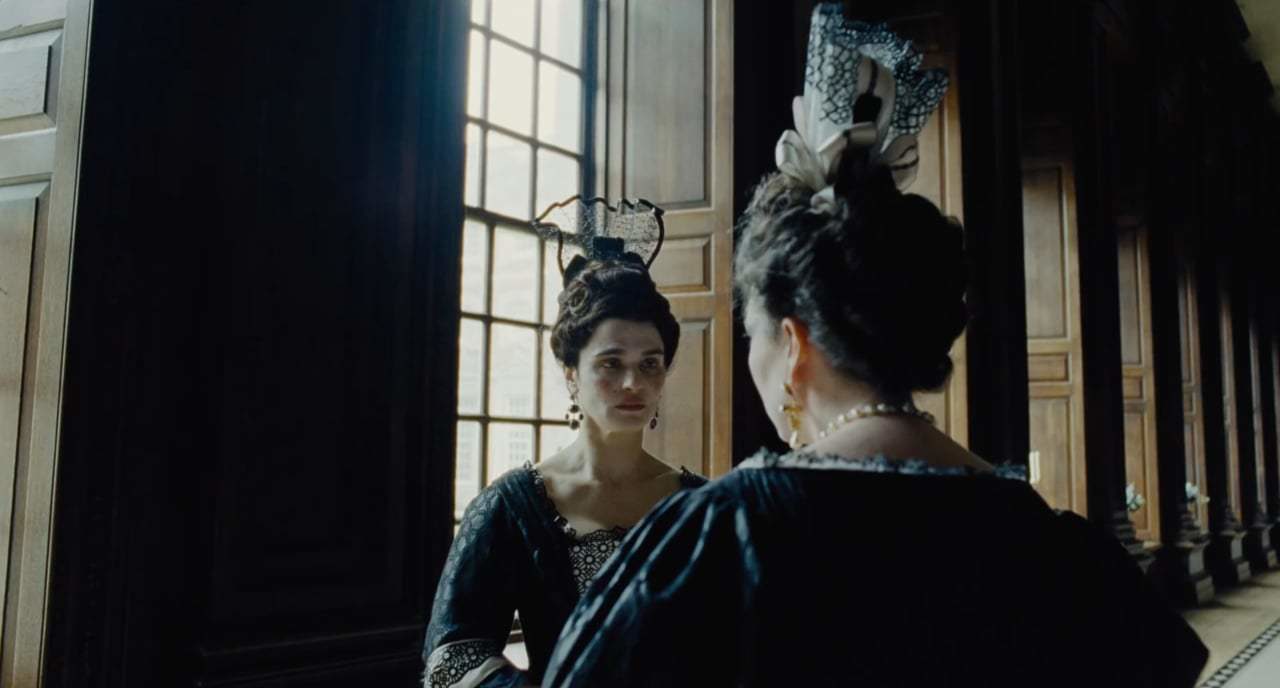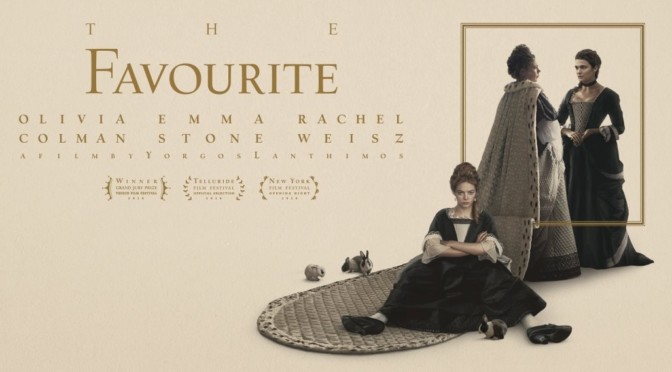In the early 1700s, while Britain is at war with France, Queen Anne (Olivia Colman; Tyrannosaur) has health issues and only a passive interest in actually ruling the nation. Her close companion and advisor Sarah (Rachel Weisz; The Lobster) manages her affairs until their relationship is interrupted by Sarah’s cousin Abigail (Emma Stone; La La Land) who, while acting as Sarah’s attendant, gains favor and influence with the Queen. Alongside their personal rivalry is a larger political struggle over the direction of the current war with party leaders trying to use Abigail and Sarah’s positions to advance their own causes.
Director Yorgos Lanthimos (The Lobster) nails the look of the film. Shot on location in large estates or palaces in England, the high ceilings and lavish interiors make the Queen’s existence feel both opulent and oppressive. The director again uses wide, almost fisheye, lenses that slightly distort the environment and, doing the inverse of The Killing of a Sacred Deer, place the camera at low heights, emphasizing how small even royalty feel in the cavernous setting. It isn’t pure extravagance though. Lanthimos never lets the audience forget the grimy living that supports the upper class with Abigail’s story. She falls into mud, scrubs floors, and sleeps in the uncomfortably crowded servant’s quarters. Her initial situation is unsavory to say the least, but is also casually dismissed by Sarah while she simultaneously reprimands everyone for the slightest error in the Queen’s care. The extensive period detail creates an unmistakable class divide and fuel for Abigail’s ambitions.

It is a joy to watch Abigail and Sarah plot against each other. Both prove themselves to be master manipulators of the Queen and know how to manage the competing political parties. Sarah starts the film with near complete control of the Queen, telling her what she can and cannot do and often speaking in her place for important political meetings, yet Abigail is able to pry open an opportunity to reach the Queen. While Sarah acts as an almost matriarchal authoritarian, Abigail takes a softer, kind approach to win the Queen’s affections. Stone and Weisz masterfully convey the intellect and determination needed to continually surprise and outmaneuver each other. The moments where they spend time together with the Queen can lead to hilarious expressions when the women are forced to act cordial despite their thinly veiled contempt.
The director’s trademark delivery and style are still present but don’t meld as well with the writing. Characters speak in Lanthimos’ ultra-deadpan, unemotional delivery that continues to distinguish his works from any other filmmaker. The manner of speech often results in unexpected humor when characters read what should be impassioned speech with cold distance, but the dialogue seems less suited to this approach that his prior releases. The Favourite is the first film Lanthimos has directed that wasn’t written by him and his co-writer Efthymis Filippou and this may be why his vision feels less effective. There are fewer lines that take advantage of this diction which reduces the frequency of laughs. The chess-like scheming is exciting to watch unfold, but the script doesn’t take full advantage of Lanthimos’ signature acting style resulting less humor than desired

3/5 stars.





